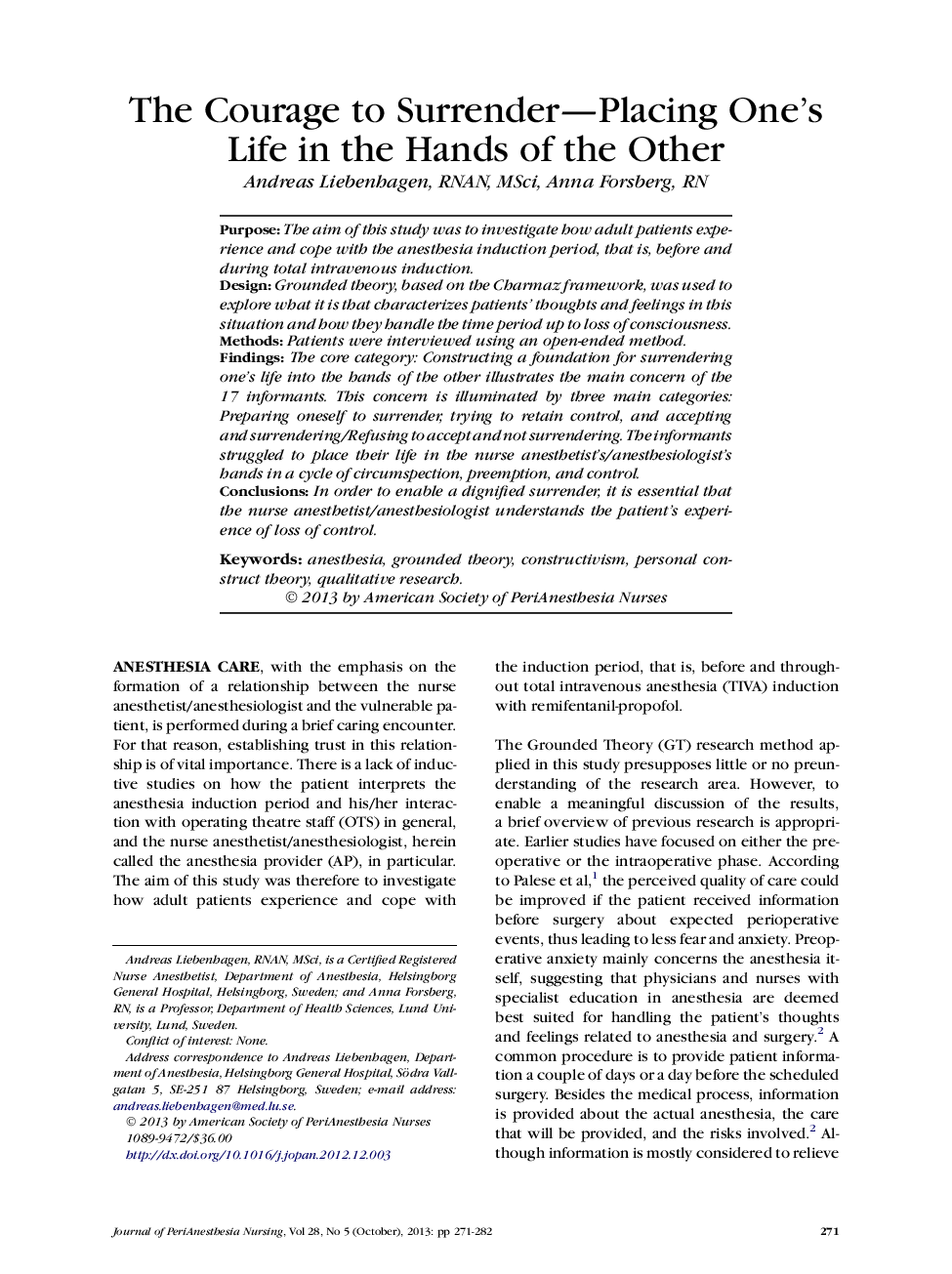| Article ID | Journal | Published Year | Pages | File Type |
|---|---|---|---|---|
| 2667178 | Journal of PeriAnesthesia Nursing | 2013 | 12 Pages |
PurposeThe aim of this study was to investigate how adult patients experience and cope with the anesthesia induction period, that is, before and during total intravenous induction.DesignGrounded theory, based on the Charmaz framework, was used to explore what it is that characterizes patients' thoughts and feelings in this situation and how they handle the time period up to loss of consciousness.MethodsPatients were interviewed using an open-ended method.FindingsThe core category: Constructing a foundation for surrendering one's life into the hands of the other illustrates the main concern of the 17 informants. This concern is illuminated by three main categories: Preparing oneself to surrender, trying to retain control, and accepting and surrendering/Refusing to accept and not surrendering. The informants struggled to place their life in the nurse anesthetist's/anesthesiologist's hands in a cycle of circumspection, preemption, and control.ConclusionsIn order to enable a dignified surrender, it is essential that the nurse anesthetist/anesthesiologist understands the patient's experience of loss of control.
